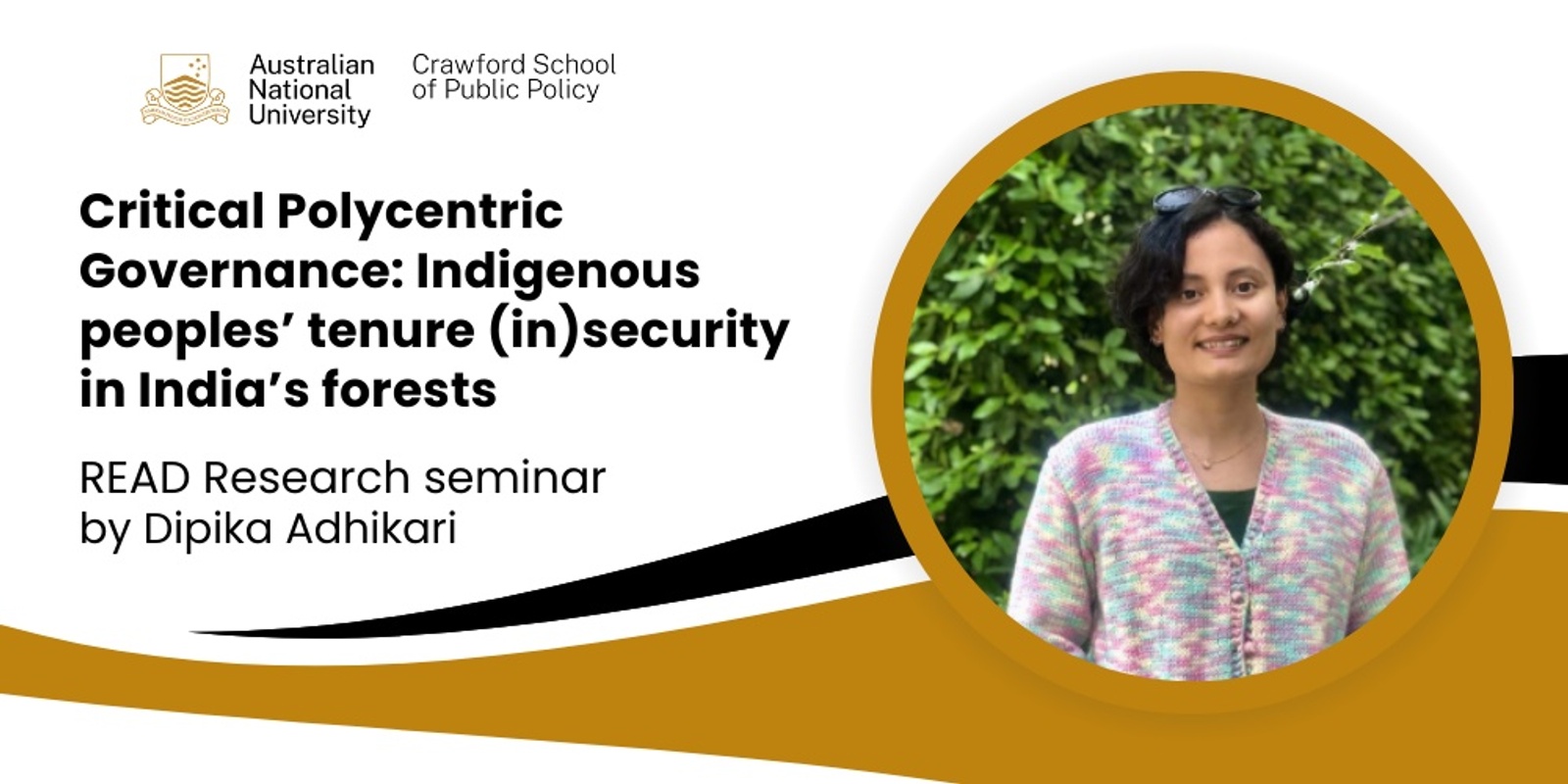READ Research seminar: Critical Polycentric Governance: Indigenous peoples’ tenure (in)security in India’s forests
Event description
Please join us for an upcoming RE&D Research Notes webinar, hosted by the Resources, Environment and Development group (RE&D) at the ANU Crawford School of Public Policy.
PhD candidate Dipika Adhikari will present her research on Critical Polycentric Governance: Indigenous peoples’ tenure (in)security in India’s forests. The seminar will be facilitated by Christina Griffin of RE&D.
Polycentric systems of governance–where diverse institutional actors from government, community, civil society organisation etc., operate across multiple jurisdictional levels interdependently–is argued to offer unique opportunities to address complex collective action problems at scale. While there is a growing body of literature that focuses on polycentric governance of natural resource governance, only a few have paid attention to how critical polycentric configuration may shape Indigenous tenure security in forest commons. To address this research gap, I examine how power in (apparently) polycentric system of governance influences institutional arrangements and interactions, and its implications for Indigenous forestland tenure security. I employed a qualitative case study method to put the focus on India’s Indigenous Van Raji peoples of Kumaon Himalayas. Adopting Carlisle and Gruby’s (2019) polycentric governance framework and Morrison et al.'s (2019) polycentric power typology, I problematise the ideas of recentralisation and justice, in light of critical polycentric governance of Indigenous tenure reforms.
I found that State actors reify their authority through incongruities and ambiguities in the written rules, misinterpretation of rules and procedural adjustment, false compliance to non-decision making, feigned ignorance and deliberate slippages in de jure autonomy of the Indigenous people. These actions are intertwined with networked patronage and governmentality in implementation and decision-making processes, effectively de-establishing dispersed autonomy, cooperative linkages, and conflict resolution mechanisms. I argue that they do so to reinforce the state's pre-existing hegemonic and hierarchical governance system across scales and levels. Extending this logic further, I argue that powerful nested polycentric actors create a superficial veneer of polycentric structure that symbolise ‘just-washing’ in forest reforms.
Bio:
Dipika Adhikari is a PhD candidate at the Resource Environment and Development group, Crawford School of Public Policy. Recently, Dipika received the Best Poster Award at the prestigious Ostrom Workshop 7 at Indiana University, Bloomington, USA, for a poster presentation on her PhD research. She is a human geographer by academic training with professional experience in public policy research. Prior to joining her doctoral program, Dipika worked with various national and international research organisations to support their policy research across water, renewable energy, agriculture, climate change and livelihoods spheres.
Tickets for good, not greed Humanitix dedicates 100% of profits from booking fees to charity

